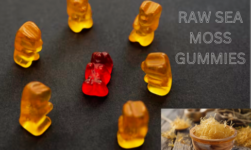
Successful beverage formulations are complex and require more than just a recipe. They need a unique formula, healthy ingredients, a good shelf life, sustainable packaging and much more. With so much to do, it is common for new entrepreneurs to feel confused and overwhelmed.
If you want to launch a new drink, knowing about beverage formulations, types, and top trends might help you. Luckily, we are discussing this in this blog. Keep reading ahead.
What Is Beverage Formulation?
Beverage formulation is the process of creating a drink recipe that not only tastes great but also meets specific health and functionality requirements.
Beverage development companies play a key role in guiding brands through this process, ensuring that the final product aligns with consumer expectations and industry standards.
Whether you’re designing a new drink with weight loss benefits or a refreshing, hydrating beverage, beverage formulation services can help you turn your vision into reality.
Types Of Beverages In Beverage Formulation:
- Carbonated Beverages
These include sodas and sparkling waters, known for their effervescence, as well as energy drinks that deliver an extra boost. - Non-Carbonated Beverages
Drinks like still water, fruit juices, teas, and smoothies fall into this category and often focus on offering refreshing, nutritious alternatives. - Functional Beverages
These drinks are specifically formulated to offer health benefits beyond basic hydration, such as energy, improved digestion, or enhanced cognitive function. - Plant-Based Beverages
Drinks made from almond, oat, or coconut milk, as well as other plant-derived ingredients, provide a dairy-free and often nutrient-rich alternative.
Trends In The Beverage Formulation Industry
1. Weight Loss And Appetite-Suppressing Beverages
With increasing concern about obesity and lifestyle-related health issues, beverages designed to promote weight loss are capturing the attention of consumers.
They are increasingly looking for products that aid in controlling hunger, support metabolism, and contribute to fat loss—all while satisfying their cravings for something refreshing.
Examples: Metabolism-boosting drinks, detox teas, and appetite-suppressing beverages.
2. Probiotics For Gut Health
In addition to weight loss, gut health has become a primary focus for consumers. The rise of probiotics in beverages reflects this growing interest in digestive wellness.
These drinks are seen as an easy and delicious way to incorporate probiotics into the daily routine, supporting the gut microbiome and contributing to better overall health.
Consumers are drawn to these drinks because they offer a holistic approach to wellness, addressing both the gut and overall well-being.
Examples: Kombucha, kefir, and probiotic-enhanced waters.
3. Plant-Based Beverages With Superfoods
Consumers are turning to plant-based beverages because they offer a more sustainable, nutritious alternative to traditional dairy and sugary drinks. These drinks often feature superfoods, which are nutrient-dense ingredients like acai, spirulina, turmeric, and chia seeds.
Beverages made from oat milk, almond milk, or coconut water are often enriched with superfoods to provide extra nutritional value. These superfood-infused plant-based drinks are especially appealing to those looking for dairy-free, gluten-free, or vegan options that support both health and sustainability.
Examples: Oat milk smoothies with turmeric, chia seed-infused water, and acai bowls in drink form.
4. Sugar-Free And Low-Calorie Beverages
As consumers become more health-conscious, there’s a growing preference for beverages with little to no sugar. The demand for sugar-free drinks reflects an ongoing effort to reduce sugar intake and manage weight.
Natural sweeteners like stevia, monk fruit, and erythritol are often used in place of sugar to maintain sweetness without adding empty calories.
Examples: Sugar-free sodas, flavored sparkling waters, and low-calorie iced teas.
5. Hydration-Enhancing Beverages
Hydration is a crucial aspect of health, and consumers are increasingly seeking beverages that not only hydrate but also provide added health benefits.
Hydration-enhancing drinks that contain electrolytes, vitamins, and minerals are gaining popularity for their ability to support overall well-being.
Examples: Electrolyte-infused water, coconut water, and vitamin-enhanced hydration drinks.
6.Sustainable Packaging
As environmental concerns rise, consumers are favoring beverages that align with their eco-friendly values. Sustainable packaging is becoming a key factor in purchasing decisions, with brands adopting materials that minimize environmental impact.
This includes biodegradable, compostable, and recyclable packaging options that reduce waste and carbon footprints while protecting product quality.
Examples: Beverages in plant-based bottles, aluminum cans, and glass containers.
7.Transparent Labeling
Consumers are more informed and attentive than ever, seeking transparency in the products they consume. Clear and honest labeling helps build trust, ensuring that buyers understand exactly what they’re purchasing.
Labels highlighting ingredients, nutritional facts, and sustainability certifications resonate with health-conscious and socially responsible shoppers.
Examples: Drinks with “clean label” certifications, ingredient transparency, and “no artificial additives” claims.
Why You Should Consider Beverage Formulation Services?
There’s a growing demand for beverages that promote weight loss, improve health, and provide specific benefits to the consumer. Developing such a beverage requires expertise in formulation, ingredient sourcing, and consumer preferences.
Working with a beverage development company or beverage formulation service can help ensure that your product meets market demands while offering the desired health benefits. These services can guide you through the entire process, from concept to market launch, ensuring your drink is both functional and market-ready.
Conclusion
The beverage industry is rapidly evolving, with health and wellness at the forefront of innovation. If you’re looking to create a beverage that aligns with these trends, now is the time to consult with a beverage development company.
By leveraging the expertise of beverage formulation services, you can create a product that not only caters to today’s health-conscious consumers but also stands out in a crowded marketplace. Don’t miss out on the opportunity to develop a beverage that delivers both taste and wellness.






